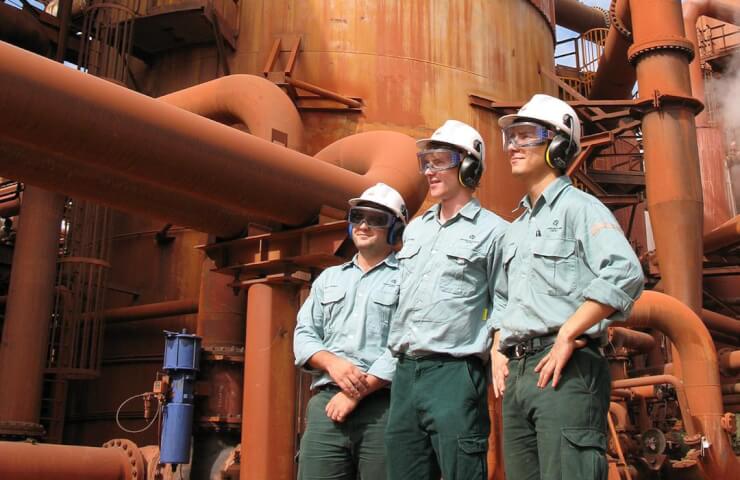Metallurgists design and manufacture metal products and structures, from tiny precision components to huge engineering parts. These professionals usually specialize in a specific area such as process, chemical or structural metallurgy.
Metallurgists study the properties of metals and then apply their discoveries to practical applications such as metal production. They work with a variety of metals, including copper, precious metals, iron, steel, zinc, and aluminum alloys. Working as a metallurgist refers to a variety of industries, including civil engineering, aircraft construction, automotive and defense industries.
They can also be called material engineers and often work in a team of engineers, chemists, and other materials scientists.
These professionals usually specialize in one of three areas:
- Metallurgists-chemists focus on the extraction of metals. They test ores and determine the best mining method. They also check metals for signs of corrosion.
- Metallurgical physicists study how metal behaves under various conditions, including in hot environments or when subjected to stress. They investigate any signs of weakness.
- Metallurgists-technologists design metal parts. They are responsible for forming metal parts using methods such as casting, and for joining these materials by welding and brazing them.
Responsibilities typically include:
- liaising with customers to define design requirements
- providing technical advice on the suitability of metals for various purposes
- make recommendations and give advice on the feasibility of the product
- researching a new product
- accurate component designs
- prototyping and innovative problem solving
- metal corrosion and fracture /fatigue research
- liaising with and supervising engineering staff
- ensuring compliance with production quality standards
- overseeing operational quality control processes using specialized computer applications
- laboratory analysis of samples
- using both destructive and non-destructive methods to test the composition
- development of new testing and repair processes
- researching production problems.
The skills these professionals need are:
- Analytical skills involve gathering information from various sources and then interpreting the data to arrive at a logical conclusion that will benefit the business.
- Math skills include the ability to perform basic addition and subtraction, as well as solve unknowns and visualize data that will be useful in the workplace.
- Problem solving skills are a way to effectively and timely solve a problem.




